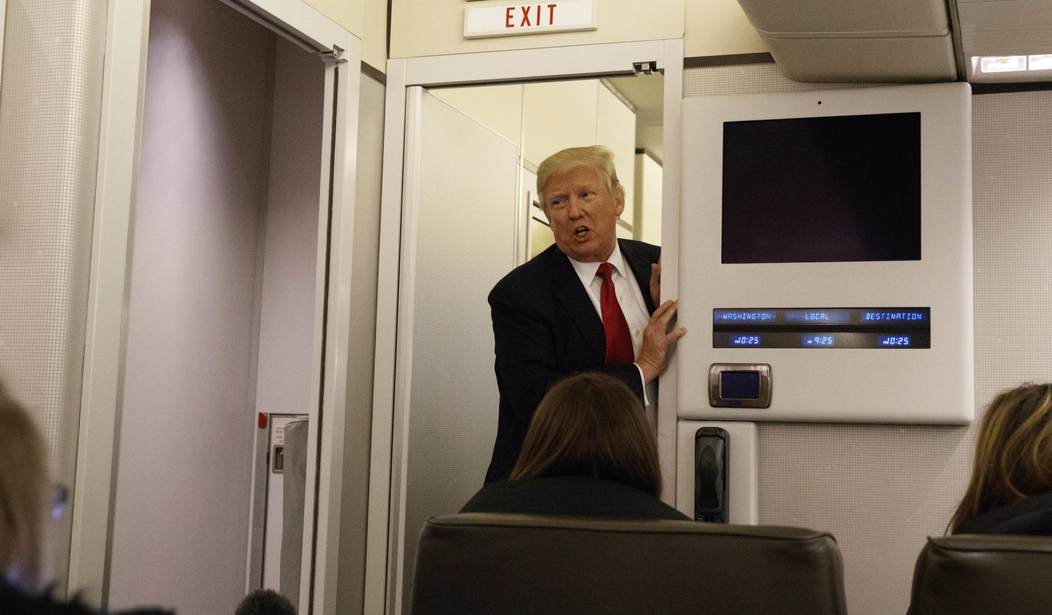The Trump administration’s revised travel ban was supposed to go into effect today, but was halted by a federal judge in Hawaii after the state argued that the restrictions still equaled religious discrimination.
Judge Derrick Watson drew upon campaign statements made by President Trump, senior advisor Stephen Miller, and surrogate Rudy Giuliani to support the state’s claim.
“Nothing of substance has changed: There is the same blanket ban on entry from Muslim-majority countries (minus one), the same sweeping shutdown of refugee admissions (absent one exception), and the same lawless warren of exceptions and waivers. The courts did not tolerate the Administration’s last attempt to hoodwink the judiciary, and they should not countenance this one,” argued Hawaii in their motion for a temporary restraining order filed last week.
Hawaii claimed violations of the establishment clause of the First Amendment and the equal protection, substantive due process, and procedural due process guarantees of the Fifth Amendment. They charged that the president exceeded his authority under the Immigration and Nationality Act and violated the Religious Freedom Restoration Act “by imposing a substantial burden on the exercise of religion,” as well as violating “the substantive and procedural requirements of the Administrative Procedure Act.”
In his 43-page ruling, Watson said the plaintiffs “have met their burden of establishing a strong likelihood of success on the merits of their Establishment Clause claim, that irreparable injury is likely if the requested relief is not issued, and that the balance of the equities and public interest counsel in favor of granting the requested relief.”
“The Government appropriately cautions that, in determining purpose, courts should not look into the ‘veiled psyche’ and ‘secret motives’ of government decisionmakers and may not undertake a ‘judicial psychoanalysis of a drafter’s heart of hearts,'” the judge wrote. “The Government need not fear. The remarkable facts at issue here require no such impermissible inquiry. For instance, there is nothing ‘veiled’ about this press release: ‘Donald J. Trump is calling for a total and complete shutdown of Muslims entering the United States.'”
That was a Dec. 7, 2015, press release issued by the Trump campaign.
“Nor is there anything ‘secret’ about the Executive’s motive specific to the issuance of the Executive Order,” citing Giuliani on TV saying, “When [Mr. Trump] first announced it, he said, ‘Muslim ban.’ He called me up. He said, ‘Put a commission together. Show me the right way to do it legally.’”
The judge continued: “On February 21, 2017, commenting on the then-upcoming revision to the Executive Order, the President’s Senior Adviser, Stephen Miller, stated, ‘Fundamentally, [despite “technical” revisions meant to address the Ninth Circuit’s concerns in Washington,] you’re still going to have the same basic policy outcome [as the first].'”
“These plainly-worded statements, made in the months leading up to and contemporaneous with the signing of the Executive Order, and, in many cases, made by the Executive himself, betray the Executive Order’s stated secular purpose,” the ruling said. “Any reasonable, objective observer would conclude, as does the Court for purposes of the instant Motion for TRO, that the stated secular purpose of the Executive Order is, at the very least, ‘secondary to a religious objective’ of temporarily suspending the entry of Muslims.”
Washington, California, Maryland, Massachusetts, New York and Oregon have also sued to stop the travel ban.
At a rally in Nashville on Wednesday, Trump slammed the court, noting “the order he blocked was a watered down version of the first order that was also blocked by another judge and should have never been blocked to start with.”
“This new order was tailored to the dictates of the 9th Circuit, in my opinion, flawed ruling. This is the opinion of many, an unprecedented judicial overreach. The law and the Constitution give the President the power to suspend immigration when he deems — or she — or she — fortunately it will not be Hillary-she. When he or she deems it to be in the national interest of our country,” he added.
“…You don’t think this was done by a judge for political reasons, do you? No. This ruling makes us look weak, which, by the way, we no longer are. Believe me. Just look at our borders. We’re going to fight this terrible ruling. We’re going to take our case as far as it needs to go, including all the way up to the Supreme Court.”
Trump said he wants to return to the original order, which included Iraq among the banned countries and roped in all visa holders whereas the revised ban only applies to new applications, before taking it to the Supreme Court.
“Remember this. I wasn’t thrilled, but the lawyers all said, oh, let’s tailor it. This is a watered-down version of the first one. This is a watered-down version,” he said. “And let me tell you something. I think we ought to go back to the first one and go all the way, which is what I wanted to do in the first place.”
Senate Foreign Relations Committee Ranking Member Ben Cardin (D-Md.) said the ruling shows Trump “continues to believe that he and his administration are above the Constitution of the United States.”
“And once again, a federal judge has carried out his constitutional duty of checks and balances on dangerous overreach from an executive order that targeted individuals based on religion. Despite minor changes, this latest executive order was just as legally objectionable and morally reprehensible as the original,” Cardin said.
“There is a real threat that this nation faces from terrorism, and our policy efforts must address that threat. But President Trump seems convinced that the only way to keep Americans safe is to lock our doors and abandon any shred of moral leadership that might remain. His orders have made us less safe and have helped strengthen the hand of those who would do us harm either through recruitment or self-radicalization… After more than two strikes against his travel ban, perhaps he now understands that the most effective route to keep our nation safe is to work with Congress on comprehensive immigration reform rather than continuing to damage our relationship with much of the world.”








Join the conversation as a VIP Member